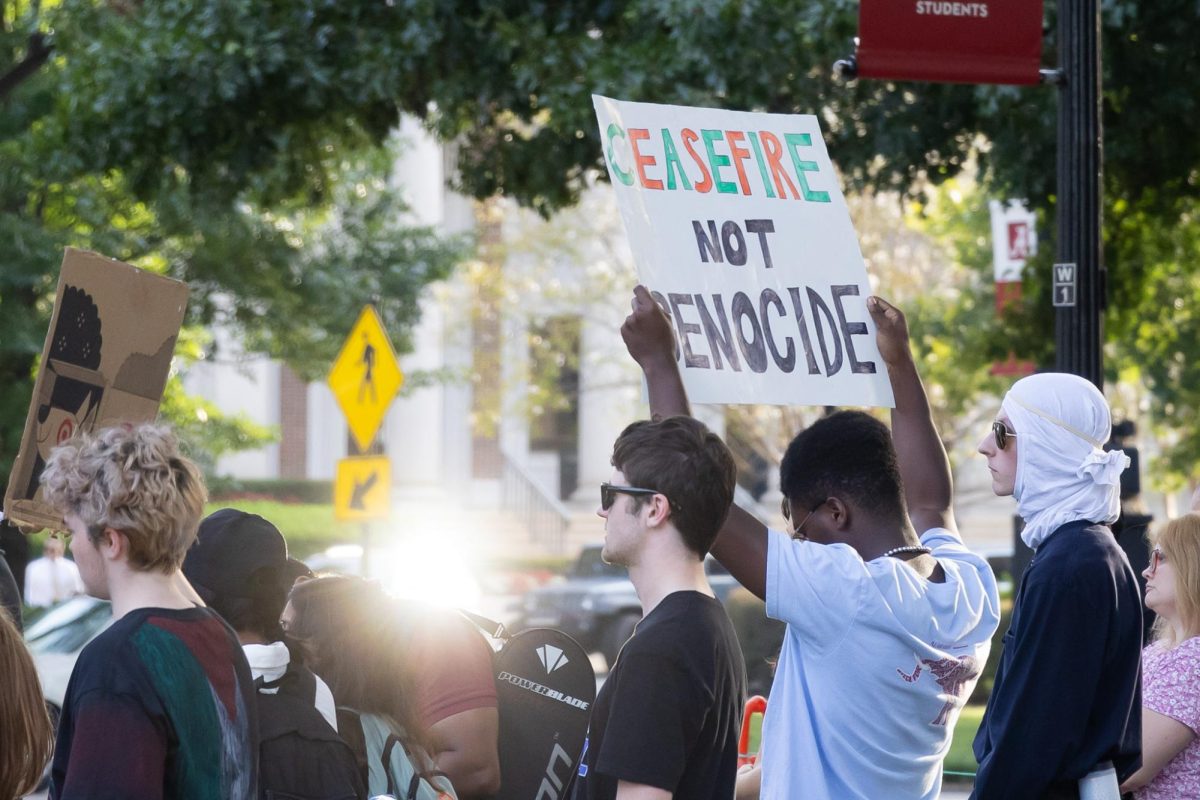Students have a niche role in political activism, holding specific responsibilities in the political sphere on their respective campuses.
According to a survey done by United Way of the National Capital Area, more Gen Z members regularly engage in activism or social justice work than millennials, and participation rates were even higher among college students.
“I think history is just one big testament to the fact that young people define history, especially in politics,” said Luke Mintz, a sophomore majoring in political science and vice president of the UA College Republicans. “Everyone here at college has a responsibility to make this state, their community and the nation better.”
Mintz added that during UA College Republican meetings, students have the opportunity to discuss political topics in a way that develops critical thinking and communication skills.
Braden Vick, a senior majoring in political science and history and the president of UA Democrats, described the group’s political influence through student activism, namely through Get Out the Vote tabling discussions, involvement in city council elections and endorsements of candidates.
Vick suggested that it has become especially important for student activists to pay attention to the capabilities of those in office.
“There are some people that have faithfully served the party for decades, that have faithfully served their constituents for decades, who simply aren’t up for the moment right now,” Vick said. “We have to recognize that, and once we do recognize that, we organize and replace those leaders with people that are fit to fight.”
Vick said free speech on campuses and students’ rights to demonstrate are being threatened.
In support of his argument that the administration of President Donald Trump is limiting free speech, Vick referenced the arrest of Mahmoud Khalil, a Columbia University graduate student who helped lead protests against Israel.
The arrest, and subsequent ones, follow a post made by Trump on Truth Social in which he stated educational institutions that allow “illegal protests” will lose funding. Trump also stated that “agitators” would be expelled, arrested or deported.
Trenton Buffenbarger, a junior majoring in political science and the chairman of UA Young Americans for Freedom, offered a different perspective on Trump’s policies.
“I would say that Trump has been one of the most pro-free speech presidents in the past few years,” Buffenbarger said. “People silenced him, and he knows how it feels, so I think he’s a very big advocate for free speech from what I’ve seen.”
Mintz said the declaration regarding “illegal protests” will not have a major effect on UA students due to the consistent recent history of lawful protests.
“I personally know lots of the students that organized protests and events on both sides of the aisle, and I think that the Capstone has done an amazing job of raising up levelheaded people who make their voices known,” Mintz said.
Protests at UA, specifically those regarding the conflict in Gaza, have been safe and orderly. Many protests at other universities, such as Columbia, have caused significant damage.
“We have always been glad, even with the protests that have popped up for Palestine on this campus, that they have not even come close to turning into the sort of situations that we’ve seen at Columbia and other campuses across the country,” Vick said.
Despite differing political perspectives, all three student activism leaders expressed the importance of participation in student activism.
“I would challenge my fellow students to think about the impact that action now will have on their lives down the road, and the lives of their children,” Mintz said.









